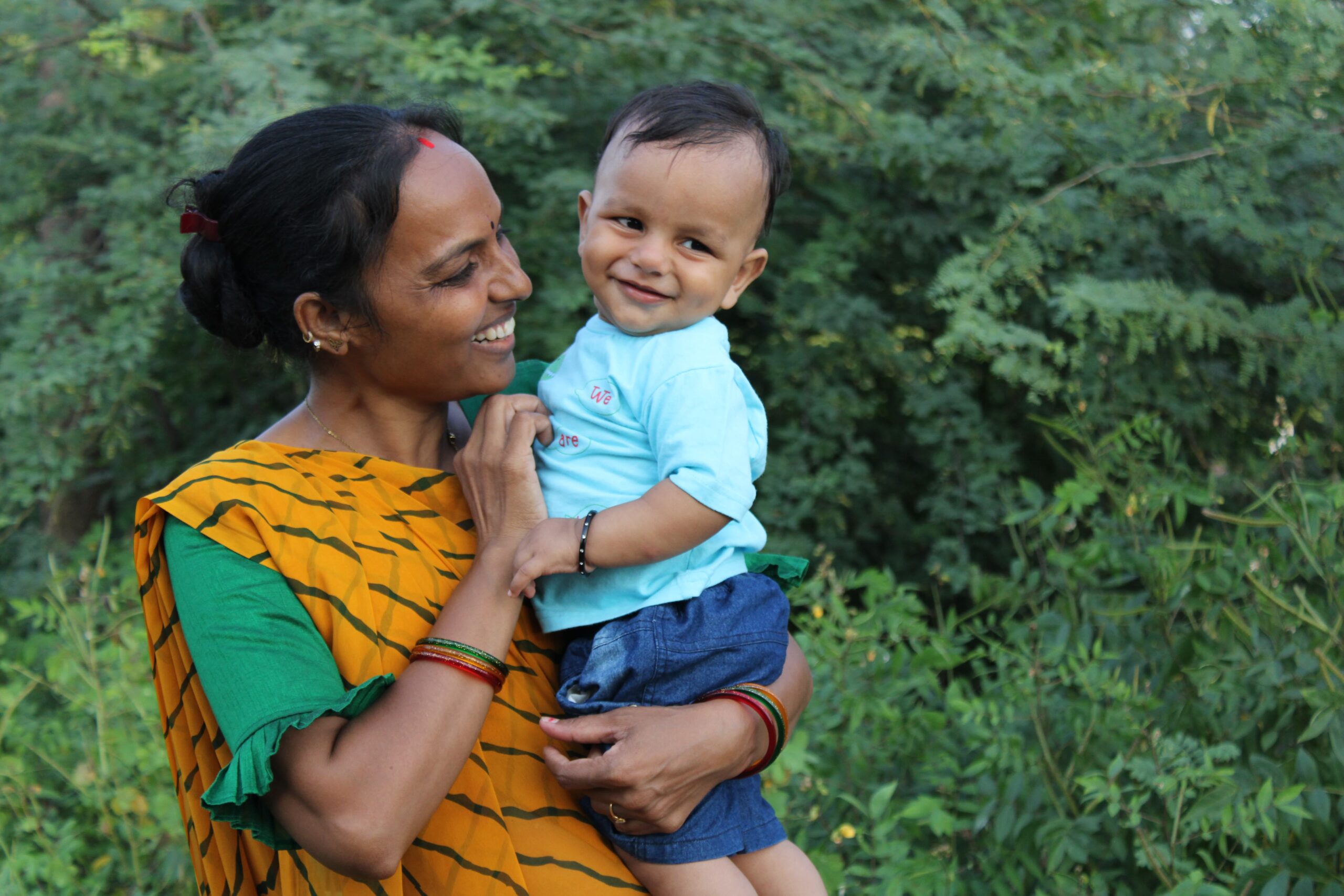In August 2023, at Anganwadi in Govandi, Maharashtra, 11-month-old Anshula Shaikh (name changed) was assessed and found to have low weight compared to her height by a Community Mobilizer (CM) from Action Against Hunger. Anshula weighed 7 kg, measured 65.5 cm in height, had a MUAC of 120 mm, and a WHZ score of -2. The CM informed Anshula’s mother that a Moderate Acute Malnutrition (MAM) card would be created for her daughter from Action Against Hunger, and her weight would be monitored every 15 days by the CM. Anshula’s mother mentioned that the child had experienced vomiting and a fever in the past 15 days but was currently fine. The CM advised her to provide boiled water, avoid open food, and feed Anshula freshly cooked meals.
However, after another 15 days, Anshula’s weight had decreased. Upon inquiry, the CM discovered that Anshula was only breastfed and not given complementary food. The CM educated the mother on introducing complementary food, emphasizing diet diversity, quantity, and frequency.
Despite a slight improvement in weight after 15 days, Anshula’s weight was still 200 grams less than her admission weight. The CM sought the assistance of a counselor who found out that the mother struggled financially because the father had dual marriages and was reluctant to spend on Anshula’s health. The CM and counselor jointly ensured that Anshula’s mother received Take Home Ration (THR) from the Anganwadi Center (AWC) and provided guidance on using THR ingredients like moong dal, toor dal, rice, and semolina to prepare nutritious meals.
With consistent follow-ups and home visits, Anshula’s health improved, leading to her discharge in March 2024. Her seven-month journey included 13 Out Patient Treatment (OTP) follow-ups and 7 home visits, resulting in Anshula weighing 7.6 kg, measuring 68.3 cm in height, with a MUAC of 126 mm, and a WHZ score of -1. The goal extended beyond Anshula’s recovery to empowering her mother for the family’s future well-being.




